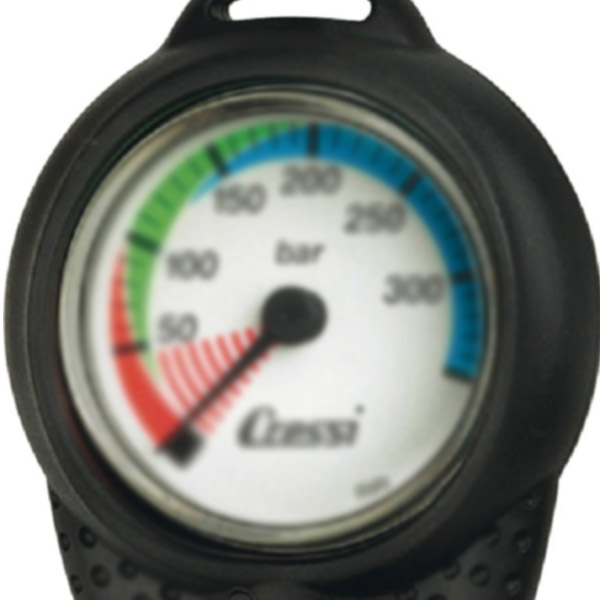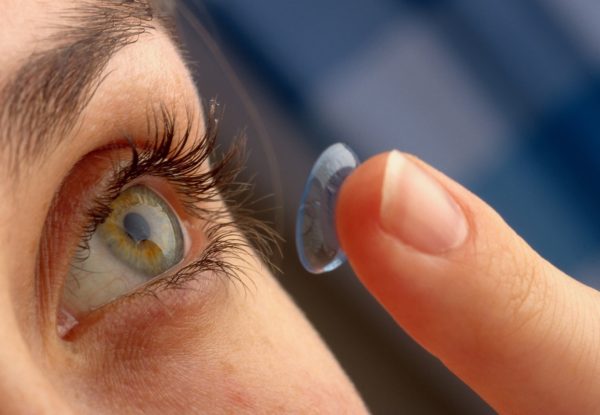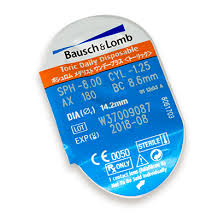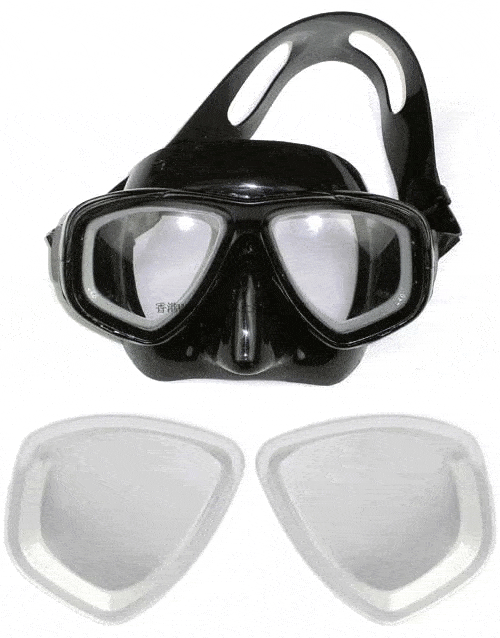What can you do when you can no longer see your gauge?
Not everyone has great eyesight. One of the great things about diving is that physical impairments that are a problem on land are much less of a problem under water
One of the properties of light passing through both water and the air in your scuba mask, is that it results in a 30% magnification.This means that those of us whose eyes are going past their best, can still see.

A few years ago I found that I couldn’t read my grading slates underwater, and it was getting hard to read my dive computer. As a Course Director, I need to be able to make notes underwater so that I can give feedback to instructor candidates. More importantly, as a diver I need to be able to monitor my dive time, depth and air supply.
I’m not the only person who has trouble reading underwater, I’m fortunate that this has only recently become a problem. For many, glasses are an integral part of their life on land, and not being able to wear them underwater is a real issue.
If you can’t read your dive computer or gauge, then you have 2 simple solutions: Contact Lenses, or a Prescription Mask.
Contact Lenses vs Prescription Mask
I see many people on forums asking about contact lenses underwater, and there is a lot of mis-information.
There is also a few different options when it comes to masks. You can have the whole lens as a single prescription, glue-in bi-focal lenses, fixed bi-focals ….
In the end it comes down to personal choice. Some people just don’t get on with contact lenses. Others (like me) have lost masks and are reluctant to invest the extra in prescription lenses.
I’m going to take a look at the pros and cons, and what is available to you, Then it’s down to you.

Are contact lenses safe when scuba diving?
The simple answer is yes – as long as you follow a few simple rules.
- Always wear daily lenses when diving and discard the lens at the end of the day
- Take extra wetting solution with you, diving can make your eyes dry.
- Keep your eyes closed if you need to flood or remove your mask.
- If your eyes get red or sore after diving, see a doctor or optician to get it checked out.
What are the risks of contact lenses?
There is a slightly increased risk of a sight-threatening infection by acanthamoeba.
Acanthamoeba is a treatable infection, that doesn’t only affect contact lens wearers, and the symptoms are redness and soreness of the eye within 2 or 3 days of diving. Treatment with antibiotic eyedrops will solve the problem.
The reason it’s a greater risk with contact lens wearers, is that normal lens cleaners don’t remove this particular nasty. Putting contact lenses back in will effectively re-apply the infection. The solution is simple. Wear dailies that you will not put back in your eye.
Failure to treat the problem can result in permanent damage to the cornea, so whether you wear contact lenses or not, if your eyes are red and sore a couple of days after a dive – get it checked out.
The Midlands Diving Chamber has good information about the use of lenses with diving.
The effect of pressure can cause the lens to suction on to your eye a little too strongly.
If this happens due to the increased pressure underwater, it is easily remedied with rewetting drops. Diving does seem to make your eyes dry too, so you may find that you need to apply re-wetting drops to get your contact lenses to stay in! Keep a bottle in your dive-bag.
You may lose a lens if your mask floods
This doesn’t happen very often when you are diving, but there are some situations where it does. On both the Divemaster Course and the Open Water Course there are skills where you will need to flood or remove your mask.
I have found that you can happily swim around without a mask, with your eyes open, and your contact lenses will stay in. However, they will come out during the flooding or clearing process, so you need to close your eyes for those.
Occasionally your mask will flood when you were not expecting it. For these occasions, keep a spare pair in your dive kit, and you can replace one if it’s lost.

Prescription Masks

Prescription lenses can be fitted into diving masks, and are a possible alternative, particularly for spectacle wearers, but can be pricey and (from personal experience) ideally you need a second one as a back-up.
In Asia there is a big demand for minus (-) lenses as a lot of asians are short-sighted. In Europe, there is more demand for plus (+) lenses, particularly for the over 40’s.
There are several options out there. The cheapest is glue-in/suction bi-focals that you stick on the inside of your mask to allow you to look down and read your computer or gauge. Having tried them, I wasn’t impressed, I lost one after the first day, because it washed off the mask. Some people swear by them, but I can’t include myself in the fan club.
Replacement lenses
These are a more costly but more durable option, and they are what we rent out to customers who need visual assistance.The whole lens is replaced by a prescription lens, and they come in single vision or bifocals too.
If you need help because age has reduced your ability to read small digits, then you probably need the bifocals.If you are short sighted, then the single vision will usually be right for you.
Remember that you will have some magnifying effect from the water anyway, so you may not need a lens as strong as in your spectacles!
If you are planning to dive on the Similans or Surin Islands and need a prescription mask, then contact us to book one.
